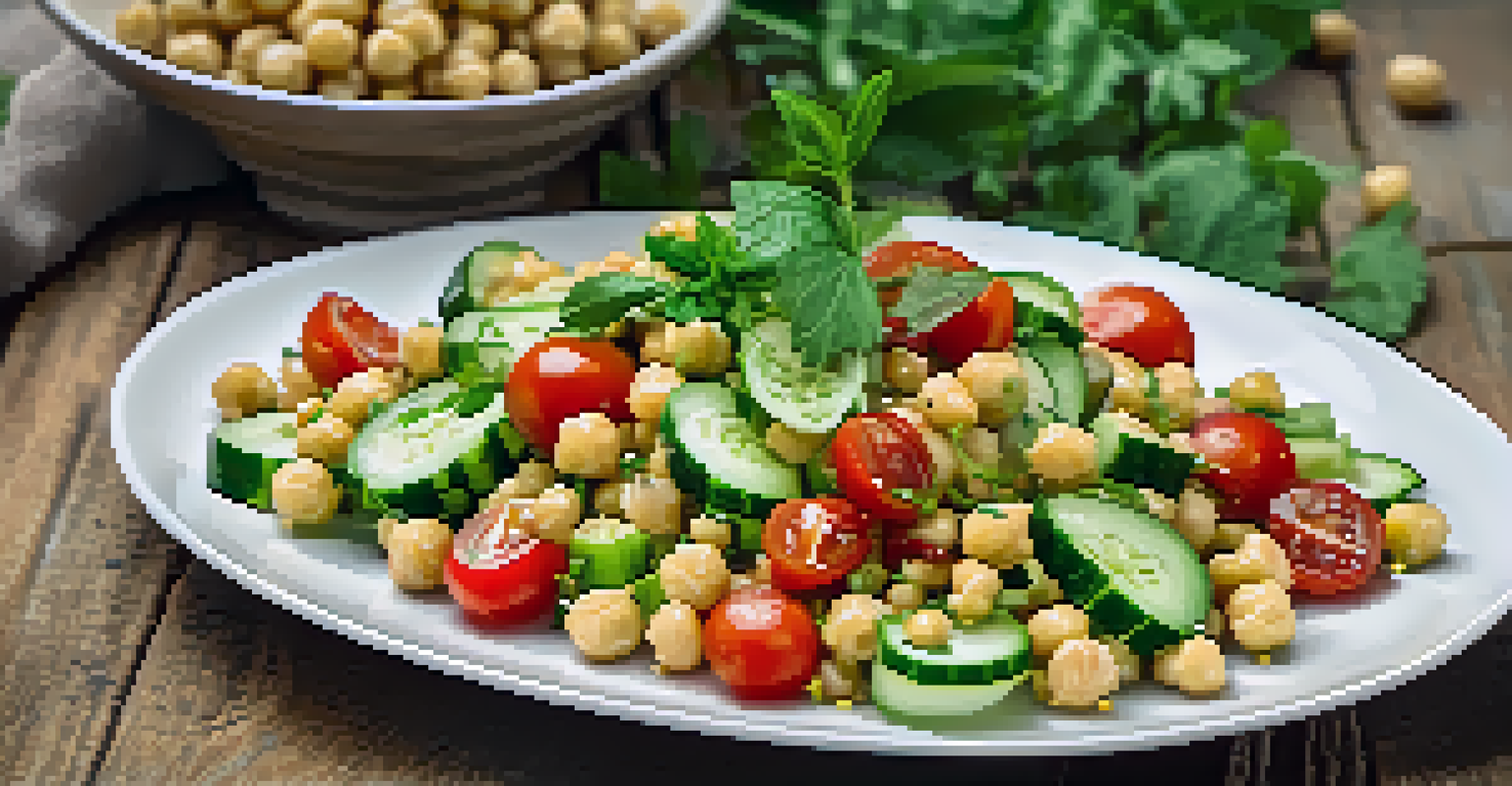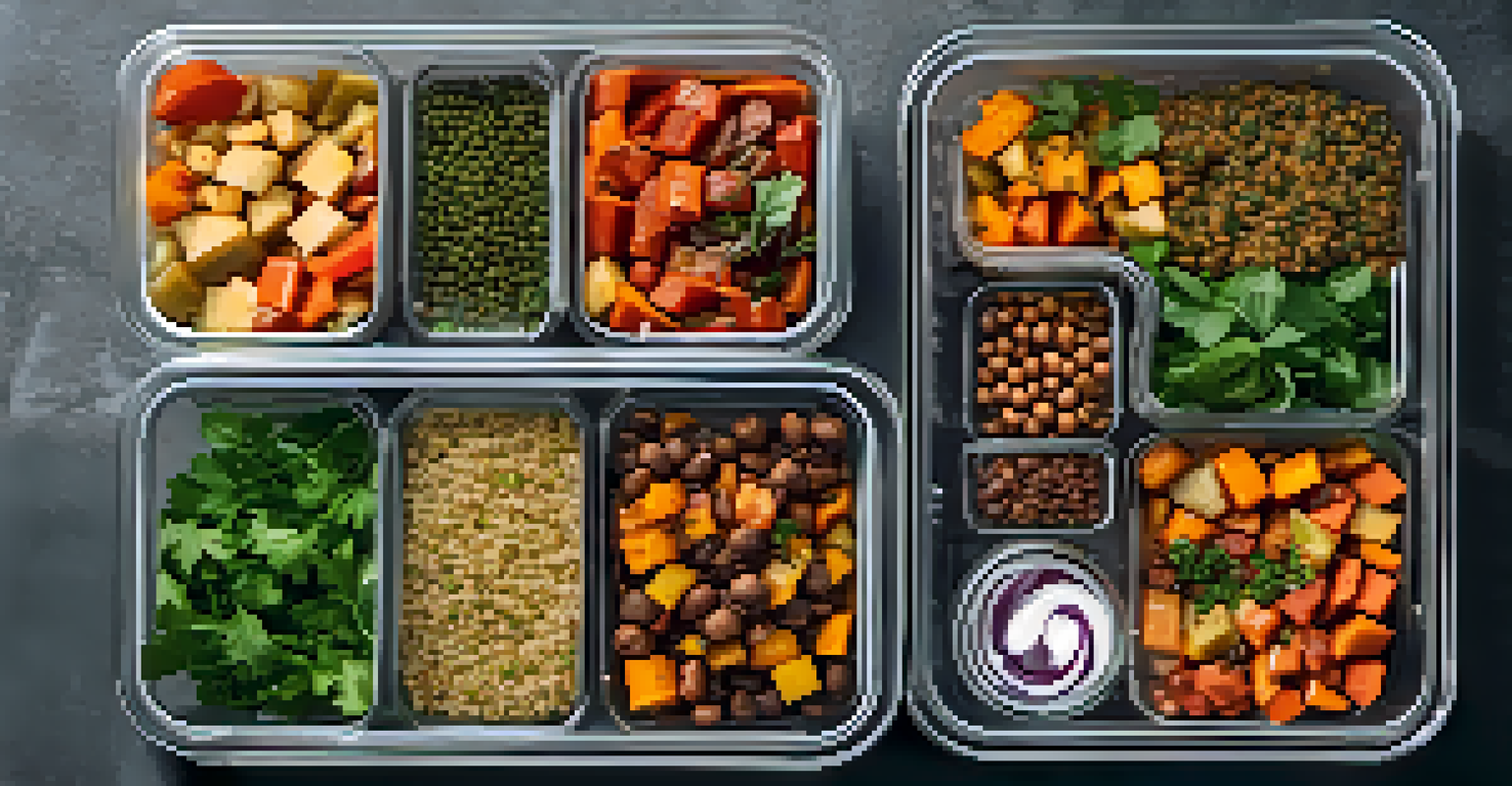Vegan Meal Planning for Beginners: A Comprehensive Guide

Understanding the Basics of Veganism
Veganism is more than just a diet; it's a lifestyle choice that excludes all animal products, including meat, dairy, and eggs. This approach not only benefits health but also promotes ethical treatment of animals and sustainability. The fundamental idea is to focus on whole, plant-based foods, which can be a delightful culinary journey.
The food you eat can be either the safest and most powerful form of medicine or the slowest form of poison.
For beginners, it might seem daunting to completely alter your eating habits, but understanding the core principles can make it easier. Replacing animal products with plant-based alternatives is key to maintaining a balanced and fulfilling diet. Familiarizing yourself with the variety of fruits, vegetables, grains, and legumes available will help you get started.
Moreover, embracing veganism often leads to discovering new flavors and ingredients. By stepping out of your comfort zone, you'll find that there's a whole world of delicious plant-based foods waiting to be explored.
Benefits of Vegan Meal Planning
Meal planning is a game changer, especially for beginners. It helps streamline your grocery shopping, reduces food waste, and saves time during the week. Plus, when you plan your meals, you're more likely to stick to your dietary goals and make healthier choices.

By outlining your meals in advance, you can ensure a balanced intake of nutrients. This is vital for vegans, as certain nutrients like protein, iron, and vitamin B12 are often found in animal products. Planning allows you to incorporate a variety of sources to meet your nutritional needs seamlessly.
Veganism as a Lifestyle Choice
Veganism goes beyond diet, promoting ethical living by excluding all animal products and focusing on plant-based foods.
Lastly, meal planning can be a creative outlet. It encourages you to experiment with different recipes and ingredients, making the transition to a vegan lifestyle not just healthy but also enjoyable.
Key Nutrients to Focus On
When adopting a vegan diet, it's essential to focus on specific nutrients to maintain health. Protein, for instance, can be found in legumes, tofu, nuts, and seeds. Ensuring adequate protein intake is crucial for energy and muscle maintenance.
Veganism is not a sacrifice. It is a joy.
Iron is another critical nutrient, as plant-based sources aren't absorbed as efficiently as those from animal products. Foods like lentils, chickpeas, quinoa, and fortified cereals are excellent options. Pairing these with vitamin C-rich foods like bell peppers or oranges enhances iron absorption.
Lastly, don’t overlook vitamin B12, which is primarily found in animal products. Vegans should consider fortified foods or supplements to ensure they meet their B12 needs. Keeping an eye on these nutrients will help you feel your best on a vegan diet.
Essential Pantry Staples for Vegans
Stocking your pantry with essential vegan staples can simplify meal preparation tremendously. Items like whole grains, legumes, canned tomatoes, and nut butters can serve as the foundation for countless meals. These ingredients are not only versatile but also budget-friendly.
Don’t forget about spices and herbs; they can elevate any dish and make plant-based meals exciting. A well-stocked spice rack can transform simple ingredients into flavorful meals. Consider adding staples like garlic powder, cumin, and paprika for a kick.
Benefits of Meal Planning
Meal planning simplifies grocery shopping and ensures a balanced intake of nutrients, making it easier to stick to a vegan diet.
Additionally, having a variety of plant-based milks, oils, and vinegars on hand can expand your cooking options. These staples ensure you’re always prepared to whip up something delicious, whether it's a quick stir-fry or a hearty soup.
Simple Vegan Meal Prep Ideas
Meal prepping can be as simple or elaborate as you want it to be. Start with batch cooking grains and legumes at the beginning of the week, which can serve as a base for multiple meals. For example, prepare a big pot of quinoa or brown rice; these can easily be used in salads, bowls, or stir-fries.
Chopping vegetables ahead of time is another great time-saver. Store them in airtight containers in the fridge, so they’re ready to toss into dishes whenever you need. Roasting a large batch of seasonal veggies can also provide easy, nutritious sides throughout the week.
Finally, don’t underestimate the power of smoothies. Preparing smoothie bags with your favorite fruits and greens can make for quick breakfast or snack options. Just blend them with a plant-based milk or yogurt for a nutritious boost in no time.
Easy Vegan Recipes for Beginners
Starting with a few easy recipes can ease your transition to vegan meal planning. Think simple dishes like stir-fried vegetables with tofu, which can be customized with your favorite sauces and seasonings. This dish is not only quick to make but also packed with nutrients and flavor.
Another beginner-friendly recipe is a chickpea salad, which combines canned chickpeas, diced cucumbers, tomatoes, and a drizzle of olive oil and lemon juice. It’s refreshing, filling, and perfect for lunch or as a side dish. Plus, it takes just minutes to prepare!
Essential Nutrients for Vegans
Vegans should pay attention to protein, iron, and vitamin B12 to maintain good health and energy levels.
Lastly, consider trying a one-pot lentil stew. Combine lentils, diced veggies, and vegetable broth for a hearty meal that simmers while you go about your day. This dish is not only comforting but also a great way to incorporate a variety of nutrients into your diet.
Staying Motivated on Your Vegan Journey
Adopting a vegan lifestyle can sometimes feel overwhelming, but staying motivated is key. One way to keep your spirits high is to join a community, whether online or in-person. Engaging with fellow vegans can provide support, inspiration, and accountability.
Another effective strategy is to set small, achievable goals. Rather than aiming for perfection, focus on gradually incorporating more plant-based meals into your week. Celebrate your successes, no matter how small, to maintain a positive mindset.

Lastly, make it fun! Experimenting with new recipes, trying out vegan restaurants, or even hosting a vegan dinner party can keep your journey exciting. Remember, it’s all about enjoying the process and discovering the joy of plant-based eating.